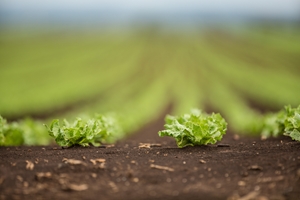A new partnership between industry organisations is designed to boost agricultural jobs in Queensland while also supporting producers and employers. The Queensland Agriculture Workforce Network (QAWN) will see government agencies work alongside key farming bodies to identify skills gaps and help fill them.
Leanne Donaldson, Agriculture Minister, said industry-based officers will be located across the state, offering help and assistance to companies so they can better understand available training options.
“We recognise that for many rural agricultural businesses, labour supply issues are a real barrier to prosperity, and we have forged a partnership with industry groups to tackle those issues,” she explained.
“QAWN officers will identify labour and skills gaps, provide information on educational and employment pathways and guide employers to the service providers and funding sources that can help them grow.”
While apprenticeships and traineeships weren’t mentioned directly, Bundaberg Fruit & Vegetable Growers (BFVG) Chief Executive Peter Hockings said the QAWN would provide advice on skills and training options. This includes information on training service providers, incentive packages and funding streams, indicating apprenticeships and traineeships could receive a boost.
Mr Hockings said agricultural employers often struggle to find appropriately skilled workers, and upskilling existing staff can be expensive.
Industry-led initiative ‘important’
Five industry organisations are involved in the QAWN, including BFVG. The other four are the Mareeba District Fruit and Vegetable Growers Association, CANEGROWERS Mackay, the Bowen Gumlu Growers Association and Growcom.
Chief Executive Officer of Growcom Pat Hannon underlined the importance of having industry take the lead on the initiative, although he acknowledged the Queensland government’s contributions.
“The network will ensure that there is a multi-faceted, coordinated approach to tackling one of the major challenges facing agriculture – accessing a consistent supply of appropriately skilled workers,” he stated.
Mr Hannon added that various challenges are arising in the agricultural sector, which may affect business’s revenues and ongoing success. As such, he emphasised the timeliness of QAWN’s introduction.
According to Ms Donaldson, the initiative is just one of the state government’s schemes aimed at supporting the agriculture industry. She said employers also have access to the Queensland Rural Jobs and Skills Alliance and industry to schools programs.
The Queensland government’s Department of Agriculture and Fisheries says the sector adds approximately $10 billion to the economy each year. There are currently 30,500 businesses involved in agricultural activities, with the state boasting the largest quantity of land dedicated to farming purposes in the country.
By Leanne Macnamara, Public Relations Coordinator

